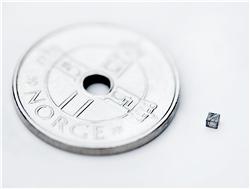Researchers have zeroed on a heat pump that can last eternally in comparison to the present day heat pumps that work for ten to twenty years.
Dr. Jan Kåre Bording, who works as the Chief Engineer at the University of Stavanger in Norway and his associate Vidar Hansen, professor of Materials Science at the University, jointly with the Department of Physics at the University of Oslo, are currently in the process of developing a thermo electric heat pump. The researchers are planning to develop the heat pump fully in five to ten years period and the new pump will enjoy a longer life span than the present day heat pumps.
 Thermo Electric Heat Pump
Thermo Electric Heat Pump
The proposed thermo electric heat pump will incorporate a number of miniature heat pumps with a very simple design. The miniature heat pumps will generate electric power when they experience deviation in temperature. Also the miniature heat pumps are designed simple and utilize a single metal part to prevent wear and tear and function continually for a number of years. The miniature heat pumps can be used in-concert to form bigger sized units for use in a building. The researchers are finding ways to make it convenient to place thousands of the miniature heat pumps at various locations in the house.
According to the researchers, the first heat pump was made around 150 years back, since then the heat pumps have not undergone many changes during all these years. The existing heat pumps incorporate a number of moving parts causing easy wear and tear, thus resulting in frequent change of parts. The bigger sized parts like the compressor utilized in the present day heat pumps completely fail in ten to twenty years period resulting in higher level of inspecting and repairing charges. Another problem experienced with the currently utilized heat pumps is the leaking of cooling gas such as Freon 12, which in turn depletes the ozone layers.
The researchers will in the beginning produce pumps that can be located at one or two places inside the house. Also, the new pumps provide more flexibility in installation and can be erected in places that suffer more cold. The size and form of the new heat pumps can be determined to meet the exacting requirement of a house.
In the proposed thermo heat pumps the use of gas has been substituted by electric power and will not suffer the problem of cooling gas release that depletes the ozone.
Source: http://www.uis.no/frontpage/